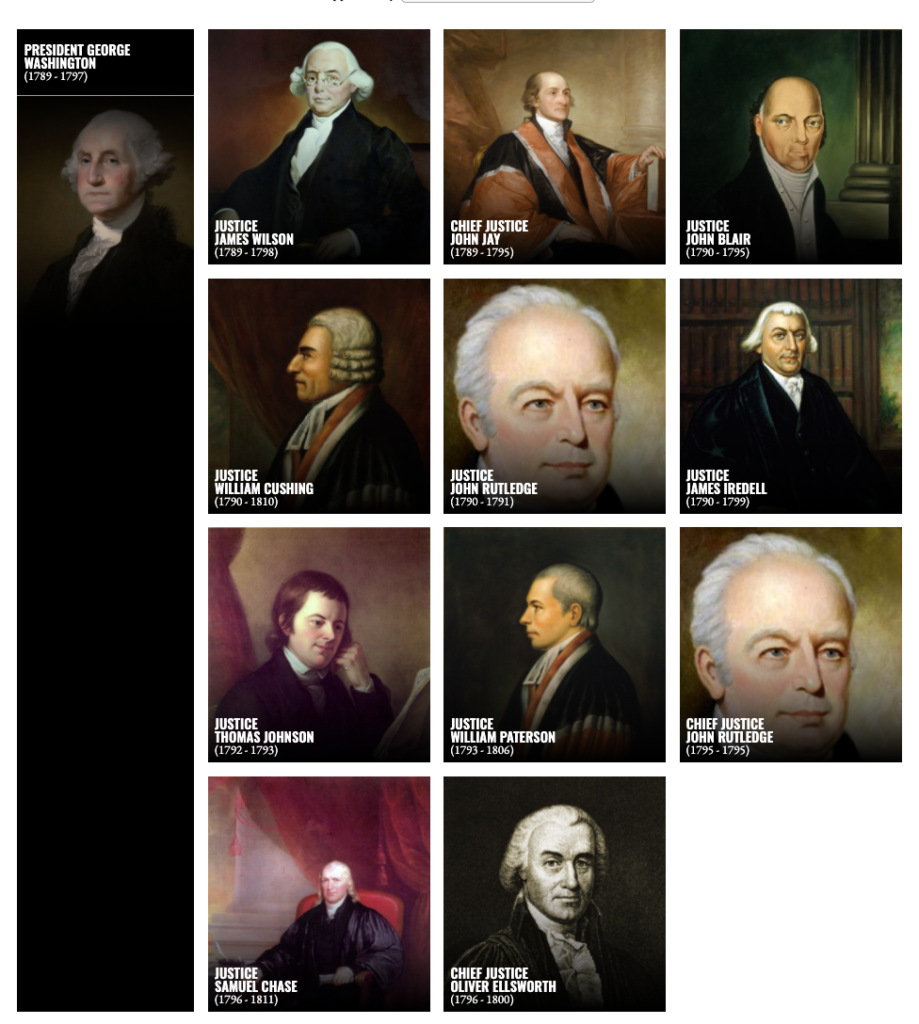The Volokh Conspiracy
Mostly law professors | Sometimes contrarian | Often libertarian | Always independent
Today in Supreme Court History: April 30, 1789
4/30/1789: President Washington's inauguration. He would appoint eleven members to the Supreme Court: Chief Justices Jay, Rutledge, and Ellsworth, and Justices Wilson, Blair, Cushing, Rutledge, Iredell, Johnson, Paterson, and Chase.

Editor's Note: We invite comments and request that they be civil and on-topic. We do not moderate or assume any responsibility for comments, which are owned by the readers who post them. Comments do not represent the views of Reason.com or Reason Foundation. We reserve the right to delete any comment for any reason at any time. Comments may only be edited within 5 minutes of posting. Report abuses.
Please to post comments


You counted Rutledge twice to get to 11 - once as associate justice and once in his promotion to Chief Justice.
Rearrange the pieces and you get an extra Justice - rearrange the pieces again and the extra Justice disappears!
https://pandamathpuzzles.wordpress.com/2012/03/15/the-vanishing-leprechaun/
"You said rape twice."
I'm not finishing that joke, thanks.
Rutledge looks like Chancellor Palpatine.
Congratulations, Eddy -- you have been awarded the inaugural Noble Prize for Journalism.
This honor will be awarded to the first person to identify in the Volokh Conspiracy comments a substantial lack of quality control -- a problem a competent editor would have flagged -- with respect to each installment of Today In Supreme Court History.
If the relevant problem involves merely a typographical error, one additional Noble Prize may be awarded with respect to a substantive error (alternative fact, installment unrelated to Supreme Court history, misstated holding, etc.) with respect to that installment.
Piss off.
Wow...I never knew that William Cushing explicitly rejected a nomination to Chief Justice. Imagine an Associate Justice today declining that invitation.
Thanks to Professor Blackman for posting this. Learned a new thing today.
Fortas did, in 1968. Though only after it was clear a Republican filibuster couldn't be terminated (it required 67 votes in those days).
Ummm -- weren't there ethical issues involving both finances and his relationship with LBJ? Didn't this force him to resign shortly afterwards? (Would he have been impeached?)
As an aside, I'm convinced that Lyndon Johnson was far more crooked than Richard Nixon ever dreamed of being...